Exploring Mushoku: Themes and Cultural Impact in Anime
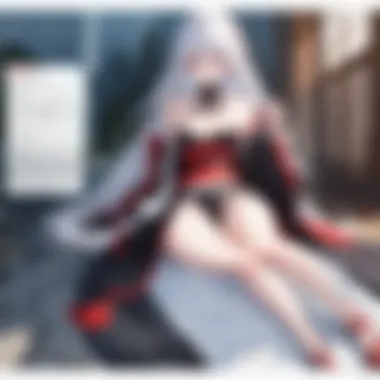
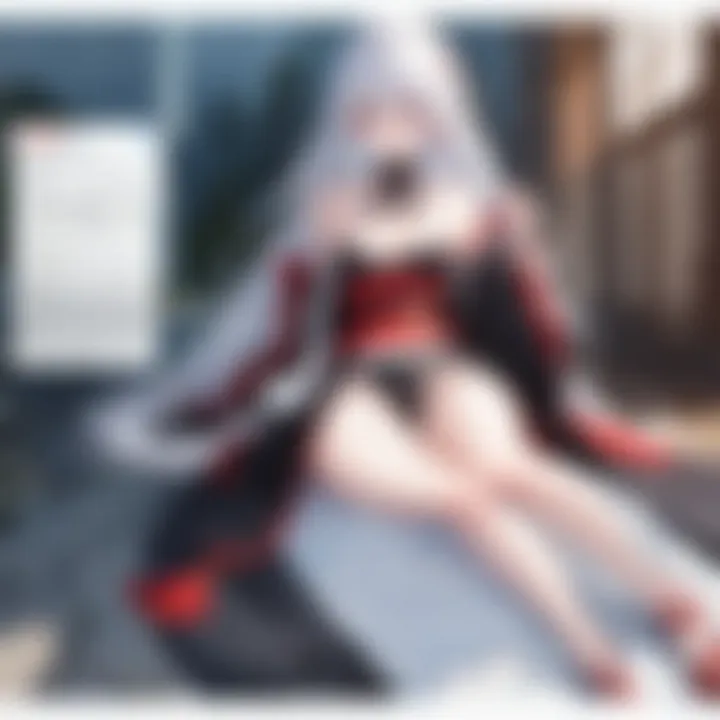
Intro
The world of anime and manga has always been a rich tapestry woven with complex narratives, emotive characters, and deep themes. Among these multifaceted aspects lies the term "mushoku," a concept that carries weight in discussions around identity, societal expectations, and the often-hidden layers of personal failure. As we embark on this analytical journey, we will break down how mushoku influences storytelling and character development in contemporary works, reflecting the broader cultural dialogues that resonate with audiences today.
This exploration aims to provide a thorough understanding of how mushoku manifests in characters and their relationships, as well as the significant themes and messages that drive plots forward. By doing so, we will not only appreciate the narratives themselves but also unveil the philosophy that underpins this evolving phenomenon.
Throughout this analysis, the aim is to engage with the themes of identity formation and the social dynamics that shape both characters and their arcs. Readers will come to see how these elements serve to illuminate the often painful, yet vital, aspects of human existence as portrayed in anime and manga.
Understanding mushoku prepares the ground for a deeper appreciation of the narratives within this genre. Let us first analyze how this concept reflects through character development, painting a clearer picture of the emotional journeys undertaken by protagonists and other pivotal figures.
Character Analysis
Overview of Character Development
In works of anime and manga, character development often goes hand-in-hand with the exploration of mushoku. Characters who find themselves in a state of mushoku grapple with feelings of alienation or purposelessness and are frequently forced to confront their sense of identity. These struggles shape their growth.
For instance, consider the protagonist from Re:Zero – Starting Life in Another World. This character starts as an ordinary young man thrust into extraordinary circumstances. His journey is marked by phases of despair and self-discovery that exemplify the evolution typical of a mushoku narrative.
Such developments can unfold in various ways:
- Through failures: Characters learn about their limitations.
- Through relationships: Bonds forged during trials can illuminate one's path.
- Through self-reflection: Moments of solitude often lead to epiphanies.
Key Relationships and Dynamics
Key relationships are often the catalysts for change in characters experiencing mushoku. They can provide support or, conversely, deepen feelings of isolation. The dynamic between characters is critical in unveiling hidden layers of their personalities.
In Fruits Basket, the interactions between Tohru and the Sohma family members demonstrate how love and understanding can heal deeply rooted wounds. Each relationship highlights different facets of mushoku, encapsulating the struggle for connection amidst personal battles.
As viewers observe these characters navigate their journeys, it becomes evident that relationships not only shape individual growth but also affect the overall narrative arc, creating an intertwining of personal and collective experiences.
Thematic Exploration
Central Themes and Messages
At the heart of many narratives addressing mushoku lie central themes such as failure, identity, and societal pressure. These narratives serve as a mirror to the audience's own challenges and dilemmas, making them remarkably relatable.
Works like Attack on Titan delve into the consequences of societal structures and the pressure they impose on individuals. Characters struggle with their roles in a society that often seems unforgiving. Such themes resonate broadly, encouraging viewers to reflect on their own lives.
Cultural Context and Influences
The notion of mushoku does not exist in a vacuum; it is shaped by the cultural milieu from which it arises. Japanese society, with its distinctive pressures and expectations, reflects deeply in these narratives. The concept of "success" is often painted in rigid strokes, leaving little room for individual expression or interpretation.
Characters navigating through their mushoku struggles can be seen as representations of the human experience, grappling with the weight of expectations. This cultural context adds depth to these stories, bridging gaps between personal narrative and broader societal discourse.
"In confronting their mushoku, characters illuminate the paths others might walk but accept they can’t do alone."
With these insights, we can better appreciate how mushoku transcends mere storytelling, offering commentary on identity, relationships, and cultural nuances. As we carve further into this discussion, we'll synthesize our findings, strengthening the bridge between analysis and appreciation.
Understanding Mushoku
Understanding the phenomenon of mushoku is crucial for grasping its role in the broader landscape of anime and manga narratives. This term goes beyond mere definition; it represents a lens through which we can explore characters’ motivations, societal challenges, and philosophical questions.
Defining Mushoku
Mushoku literally translates to "jobless" or "unemployed" in English, but its implications resonate deeper in the fabric of Japanese pop culture. Essentially, it points to individuals who often find themselves adrift, struggling with a lack of direction in life. For instance, characters like Shinji Ikari from Neon Genesis Evangelion personify this state. He experiences intense internal conflict, often feeling overwhelmed by existential dread. The term encapsulates a broader feeling of disconnection and aimlessness that resonates especially with younger audiences, whose societal roles can feel disjointed and out of their control.
This concept also serves as a foundational layer for storytelling. When characters grapple with mushoku, it exposes their vulnerabilities, making the journey more relatable. Readers can see themselves mirrored within these characters, thus creating a profound emotional connection. For example, the protagonist in Re:Zero - Starting Life in Another World, Subaru Natsuki, initially embodies a sense of hopelessness, yet his experiences transform him. This encapsulates the journey from inertia to agency, demonstrating that mushoku can be a catalyst for character development.
Cultural Significance of Mushoku
Culturally, mushoku holds a mirror to contemporary issues and societal pressures in Japan. The phenomenon isn't confined to just individual experiences; it reflects a collective disillusionment with traditional life paths. The rising phenomenon of NEETs (Not in Education, Employment, or Training) in Japan parallels the concepts explored in many narratives. The stories often challenge the rigid expectations of society, showcasing the struggles of characters who defy conventional norms.
In this light, characters immersed in mushoku serve as a critique of societal expectations. They question the value placed on employment and success, inviting readers to examine what fulfillment truly means.
"The themes of mushoku provide a poignant commentary on modern life, transforming personal struggle into universal narratives that resonate far beyond their fictional origins."
Such themes are pivotal not only to the richness of character arcs but also in sparking discussions among fans and audiences. They generate a discourse about the worth of individuality in an age dominated by societal standards. The cultural significance of mushoku is multifaceted, embodying a journey of exploration, both within the characters and in the real world, urging fans to reflect on their own life paths and choices.
Historical Context
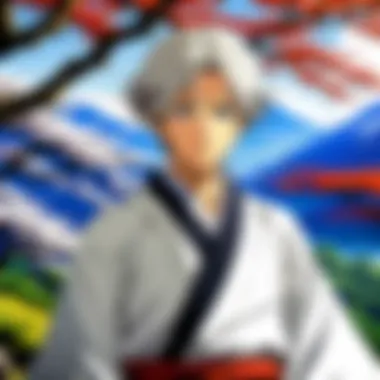

The historical context of mushoku is crucial to understanding the depth and resonances of this term within anime and manga. It illuminates how societal shifts and historical events have shaped the narratives that often explore isolation, identity, and the human condition. Recognizing these elements allows enthusiasts and scholars alike to appreciate the intricate storytelling techniques employed by creators and how they subtly engage with real-world issues.
Roots in Japanese Society
To grasp the foundations of mushoku, one must first look at the roots nestled in Japan's societal fabric. Japan has long been characterized by its strong collective culture, where people often blend their individual aspirations with community expectations. Post-war Japan saw a significant shift in this balance, with rapid industrialization and globalization challenging traditional values.
In the backdrop of these changes, we find the emergence of characters who feel disconnected from these societal norms. This quandary can notably be seen in works that explore the themes of hikikomori—individuals who withdraw from society. The phenomenon of mushoku finds resonance in these stories, where characters reflect on their struggles against a backdrop of increasingly unrealistic societal expectations. As Goda Saito, a renowned manga critic, once pointed out, "In narrating the journeys of mushoku characters, creators often hold a mirror to society's flawed perceptions of success and worth."
- Isolation: Characters often grapple with feelings of inadequacy, mirroring the experiences of many in Japanese society trying to navigate the pressures of life.
- Rejection of Societal Norms: The educational and professional systems in Japan create stringent pathways, leaving little room for those who diverge. This very notion is commonly depicted in narratives that feature characters refusing to conform.
This intertwining of character journeys with societal critiques roots mushoku deeply within the historical context of Japan, illustrating the human experience's complexities.
Evolution of the Concept
Mushoku has evolved significantly, morphing from an underlying societal criticism to a multilayered narrative device that engages with broader themes across various genres. In the early days, particularly during Japan’s economic boom, mushoku was more of an observable phenomenon. There was a slice-of-life approach to depicting characters who embodied a sense of failure or alienation in a rapidly changing society.
As the years went by, especially into the late 1990s and early 2000s, narrative arcs began to shift. Creators started using mushoku not just as a character trait, but as an essential plot element that speaks to existential questions and the quest for identity.
- Impact of Globalization: With the influx of Western ideas and storytelling techniques, creators started blending traditional Japanese motifs with universal themes. This fusion has opened avenues for exploring mushoku from different angles, including fantasy and science fiction contexts.
- Changing Character Archetypes: Early interpretations of mushoku characters were often presented as tragic figures. However, modern depictions have given rise to multifaceted characters. For instance, protagonists or supporting characters now often use their mushoku experiences as a catalyst for development rather than a hindrance.
The transformation of mushoku from connotations of failure to a narrative springboard reflects our rapidly changing world—a movement away from defeatism towards resilience and growth. The gradual acceptance of these experiences leads to a richer discourse around personal identity and societal contributions.
"In the realm of anime and manga, mushoku transcends its literary definition. It symbolizes the struggles many endure in an unforgiving society, offering a lens through which we can critique and celebrate the human experience."
By delving into historical roots and tracing the evolution of the concept, we uncover not just the what of mushoku, but the why. This deep understanding shapes a more nuanced appreciation of the narratives that define the genre.
Mushoku in Anime and Manga
Mushoku, often translated as "jobless" or "unemployed," has become a significant motif in anime and manga narratives, shedding light on various societal and personal themes. These works explore not just the absence of conventional career paths, but delve into the emotional landscapes and philosophical challenges faced by their characters. In understanding mushoku through these mediums, we also begin to recognize the reflection of broader cultural sentiments, particularly in contemporary Japan.
Classic Representations
In the earlier days of anime and manga, representations of mushoku were often straightforward. Characters with limited prospects were depicted in a rather bland fashion, usually as a critique of societal norms. A notable example of this can be seen in Neon Genesis Evangelion. Here, the character Shinji Ikari embodies a strong sense of confusion regarding his purpose and the expectations placed on him, which mirrors the struggles of the youth in Japan. This era often highlighted a sense of isolation coupled with an inner conflict, showing viewers how traditional roles can pull one away from self-discovery.
Another classic work, Welcome to the NHK, presents a darkly comical perspective on the life of a hikikomori. It emphasizes themes of seclusion while tackling broader narratives of anxiety, depression, and the hindering nature of societal pressures. The portrayal of mushoku in these earlier works often lacked the layered complexity seen today, focusing primarily on an individual's existential crises without much exploration into the underlying societal expectations.
Modern Interpretations
Contemporary representations of mushoku have significantly evolved, often blending humor, depth, and rich character development. Recent works like Re:Zero - Starting Life in Another World and The Rising of the Shield Hero present characters who are thrust into fantastical realms yet still grapple with their inner struggles relating to identity and purpose. The transition from being "jobless" in a conventional sense to finding one's place in a new world resonates with a current generation feeling disenfranchised in their realities.
These modern interpretations do not shy away from showing the intricacies of personal growth, often providing narratives where characters transform their lack of direction into unique strengths. For instance, Mushoku Tensei: Jobless Reincarnation takes the concept of reincarnation and builds upon the idea that even a person with a troubled past can shape their future. Here, the protagonist learns that life doesn’t stop with failure; rather, it’s a chance to reinvent oneself, which speaks to the struggles of many today facing career uncertainties.
Additionally, the rise of social media and its impact on self-perception has led to figures in these stories responding to their mushoku states in diverse ways. Characters explore their identities through different lenses—building communities online or striving for personal development even when traditional paths are blocked. This change indicates a needed shift in narrative, one that encourages resilience and a rethinking of life goals.
"Mushoku narratives have transitioned from mere reflections of joblessness to complex explorations of self-identity and community."
The evolution observed in those works allows for a varied depiction of personal journeys. They emphasize that one’s worth and identity extend beyond societal labels or expected roles. As such, the storylines filled with humor, magic, or fantasy create a lens through which audiences can reflect on their matters of identity, purpose, and belonging.
These contrasting takes on mushoku indicate not just an artistic shift in anime and manga, but also a societal response to real-world challenges, showcasing how narratives can foster understanding and dialogue among a diverse audience.
Character Studies
Character studies are pivotal in the realm of mushoku, providing a lens through which we can comprehend the complexities of narratives within anime and manga. These studies delve into how characters evolve, revealing their motivations and the choices they make in response to their situations. In the context of mushoku, where isolation and societal pressures are prevalent themes, examining characters becomes essential. The portrayals of these individuals reflect broader societal issues, including the struggles of identity and the impact of personal failure.
The analysis of character journeys offers insights that enhance the thematic richness of a work. Through understanding protagonists and their journeys, as well as antagonists and the ensuing conflicts, we unveil layers of meaning that resonate with audiences on multiple levels.
Protagonists and Their Journeys
Protagonists in mushoku narratives often embody internal struggles and external aspirations, a duality that drives their character arcs. They frequently start their journeys in states of confusion or detachment, reflecting a mushoku experience that makes them relatable to the audience. For instance, a character might begin in a mundane existence, overwhelmed by societal expectations, only to embark on a quest for self-discovery, facing roadblocks that symbolize real-life challenges.
Key elements in the journeys of these protagonists include:
- Introspection: Many protagonists undergo moments of deep self-reflection. For instance, they may question their purpose in life, leading to significant character development.
- Transformation: As the story unfolds, protagonists often experience radical changes. The once aimless character can morph into a figure empowered by personal insights, influencing not only their paths but also the lives of secondary characters.
- Resilience: Themes of perseverance are prominent, showcasing how characters confront obstacles. One may relate their journey to navigating a maze, where the exit symbolizes a newfound identity or purpose.
A notable example is a character like Rintarou Okabe from Steins;Gate. His journey from a self-proclaimed mad scientist to someone who deeply grapples with the consequences of his actions illustrates the nuanced nature of personal growth.
Antagonists and Conflict
Antagonists within mushoku narratives serve not just as obstacles for protagonists but also as complex characters that embody the societal issues at play. They often reflect the dark side of the conflicts, highlighting themes of alienation and despair. Their actions can shed light on more profound philosophical questions, prompting the audience to reflect on morality and the consequences of choices.
Considerations regarding antagonists in mushoku narratives include:
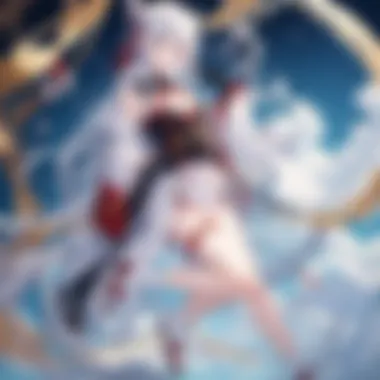
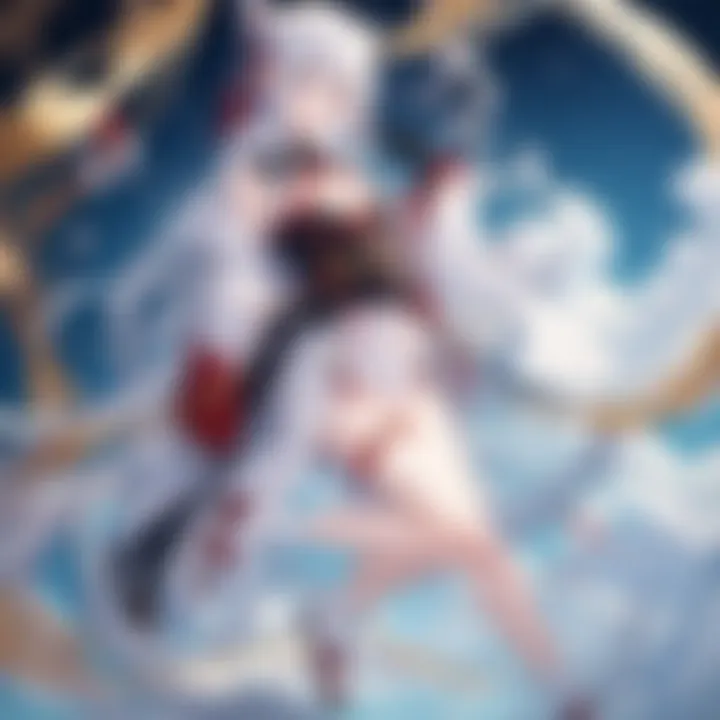
- Symbolic Representation: Many antagonists symbolize societal fears or internal struggles. For instance, the embodiment of a character's insecurities can act as a formidable foe, making the conflict much more than a mere battle between good and evil.
- Conflict Complexity: Unlike traditional heroes vs. villains scenarios, mushoku often presents multifaceted conflicts. The antagonist's desires, which often align with societal expectations, can resonate deeply with characters that grapple with their motivations.
- Redemption Arcs: Some narratives explore the possibility of change in antagonists. Engaging with their backstories provides depth and allows for a richer story that can challenge the audience’s perceptions of right and wrong.
An example is the character of Sosuke Aizen from Bleach, who moves beyond a simple villain archetype to a figure that raises questions about control, power, and personal ambition.
"In exploring these character studies, we glean valuable insights not only into the individual journeys of protagonists and antagonists but also into the very fabric of the stories they inhabit."
By dissecting character dynamics, one can uncover the social commentary embedded in these narratives, enabling a deeper appreciation of the profound themes surrounding identity and personal failure in the world of mushoku.
Thematic Exploration
The theme of mushoku reverberates throughout anime and manga, showcasing a vast tapestry that blends various aspects of human experience. It's not just a fleeting concept; it fundamentally shapes the narratives, character arcs, and societies within these works. Understanding this theme is paramount for anyone delving into the intricacies of the genre because it navigates the complex relationships between isolation, identity, and the often harsh realities of life. Through thematic exploration, we gain insight into how creators use these elements to reflect—and sometimes critique—our world.
Isolation and Belonging
The struggle with isolation is a common thread in mushoku narratives. Characters often grapple with feelings of displacement or loneliness, which is exacerbated by societal norms. This can signify a larger commentary on modern society where individuals may feel disconnected despite being surrounded by others. For example, in Durarara!!, characters inhabit the same bustling urban landscape yet experience profound isolation. This juxtaposition of a crowded city and a lonely heart gives a very raw and realistic feeling to the audience, allowing them to empathize with the characters’ plights.
The theme of belonging is equally critical. It poses the question: how does one find their place in a world that constantly alienates? This bridging of isolation and belonging can manifest in various ways. It may depict recent trends seen in My Hero Academia, where characters work tirelessly for acceptance within a society that often views them as outcasts. This quest for belonging can lead to personal growth and self-discovery, making it an essential plot point across multiple series.
Dreams vs. Reality
The tension between dreams and reality is another vital component found in mushoku narratives. Characters often harbor aspirations that clash with their real-life situations, leading to conflict and character development. This struggle becomes a focal point, examining how dreams motivate individuals but may also become sources of despair when faced with life’s harsh truths. An illustrative example is found in Your Lie in April, where the protagonist’s dream to become a pianist is marred by the trauma of loss and self-doubt. This interplay reveals how dreams shape individuals' identities but can also become chains that hold them back.
Moreover, the theme underlines the dichotomy of personal goals against societal expectations. Many characters find themselves trapped between what they yearn for and what their reality demands. This constant push and pull resonate strongly with audiences, igniting self-reflection on their journeys. Creators succeed in crafting narratives that question the efficacy of dreams when juxtaposed against the grind of everyday life, prompting viewers to ponder: are dreams worth pursuing when reality feels insurmountable?
Each of these thematic elements contributes significantly to the understanding of mushoku. By dissecting isolation and belonging alongside dreams versus reality, we can appreciate the deeper meanings embedded in anime and manga, elevating our experience from mere entertainment to profound existential reflections.
"The world we inhabit is one of countless pathways and myriad possibilities, yet loneliness and disillusionment often accompany even the most fervent dreams."
As we navigate further, it is essential to consider how these themes reflect not just individual experiences but broader societal issues, leading us into the philosophical implications surrounding mushoku.
Philosophical Implications
Exploring the philosophical implications of mushoku reveals a depth of thought that extends beyond mere entertainment. It invites us to consider important themes that reflect personal struggles, societal norms, and the existential crises faced by individuals today. Many fans see ‘mushoku’ not just as a narrative device, but as a lens through which they can understand their own lives. This adds layers of meaning to the characters and situations portrayed in anime and manga.
The significance lies in how these philosophical themes resonate with contemporary audiences. They often grapple with feelings of inadequacy and isolation, making the exploration of mushoku poignantly relevant. By delving into existential questions and identity crises, creators provide a platform for conversation that can lead to greater self-awareness among viewers.
Existential Themes
When we talk about existential themes within the context of mushoku, we’re diving into the core of human existence. Characters often find themselves at a crossroads, questioning their purpose and grappling with the notion of self-worth. These themes echo the sentiments of many individuals today, whose lives are marked by uncertainty and pressure.
Common existential questions in these narratives include:
- Why am I here? Characters may face a sense of purposelessness, mirroring the existential dread found in our own lives.
- What defines me? The struggle to grasp one’s identity can lead to introspection and, at times, despair.
An example of this can be found in series like Re:Zero where the protagonist, Subaru, repeatedly faces death and rebirth, prompting him to confront his own worthiness and what it means to truly live. The cyclical nature of his journey exemplifies the search for meaning amidst chaos and confusion.
Crisis of Identity
A crisis of identity is something that permeates many stories featuring mushoku. Characters often find themselves challenged by external events or societal expectations that force them to re-evaluate who they are. This resonates with anyone who has felt the weight of societal norms compelling them to fit a mold they may not identify with.
Factors contributing to a crisis of identity in mushoku narratives include:
- Cultural Expectations: Characters might struggle against traditional or familial obligations, leading to internal conflicts about their paths.
- Loss of Direction: A deep sense of confusion about one's goals can manifest in character arcs, highlighting their search for purpose.
Taking Attack on Titan as a case study, we see how Eren Yeager's evolution raises fundamental questions about freedom, loyalty, and self-perception. His continual turmoil over what it means to be human in a world of titans creates tension that sparks critical dialogues about identity.
"In the heart of every struggle lies the potential for transformation."
Social Commentary
Social commentary within the world of mushoku presents a compelling lens through which to examine modern societal values, expectations, and the personal struggles faced by individuals in a rapidly changing landscape. The narrative of mushoku—often marked by themes of unemployment, underemployment, and societal rejection—mirrors the real-world experiences of many people today, particularly the younger generations navigating an increasingly competitive economy. By delving into mushoku narratives, audiences gain not only entertainment but also insights into the complexities of identity, societal roles, and the burdens of modern life.
Reflection of Societal Expectations
In myriad stories that include elements of mushoku, the characters often grapple with external pressures imposed by society. These pressures can manifest in various forms, such as family expectations, career success, and social acceptance. The portrayal of these struggles in anime and manga serves as a critique of societal norms that demand strict adherence to predetermined paths of success.
For example, a series might depict a protagonist who, after failing to secure a stable job, faces societal stigma. This narrative portrait invites viewers to reflect on what it means to meet societal expectations and the inherent costs of non-conformity. Rather than merely showcasing character failures, these stories often reveal the traumatic weight of expectation—the idea that one's worth and value are tied to job status or societal roles. In this way, mushoku narratives become powerful vehicles for exploring the disconnect between individual aspirations and societal demands.
- Characters reveal vulnerabilities: The struggles of characters can prompt empathy, allowing audiences to relate to their experiences.
- Critique through humor and drama: The juxtaposition of lighthearted moments against serious themes highlights the absurdity of modern pressures.
- Spotlighting underrepresented issues: It sheds light on unemployment stigma, providing voice to those affected by economic hardship.
With these nuanced reflections, mushoku narratives challenge audiences to question their own lives and the roles they play within society. They act as mirrors, reflecting back the expectations we all feel while showing that failing is part of the human experience.
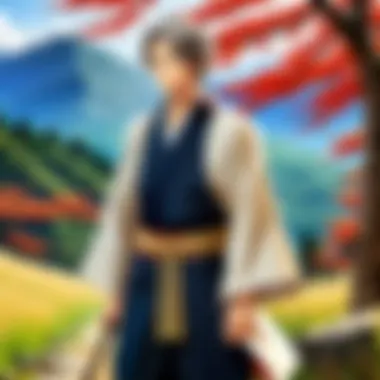
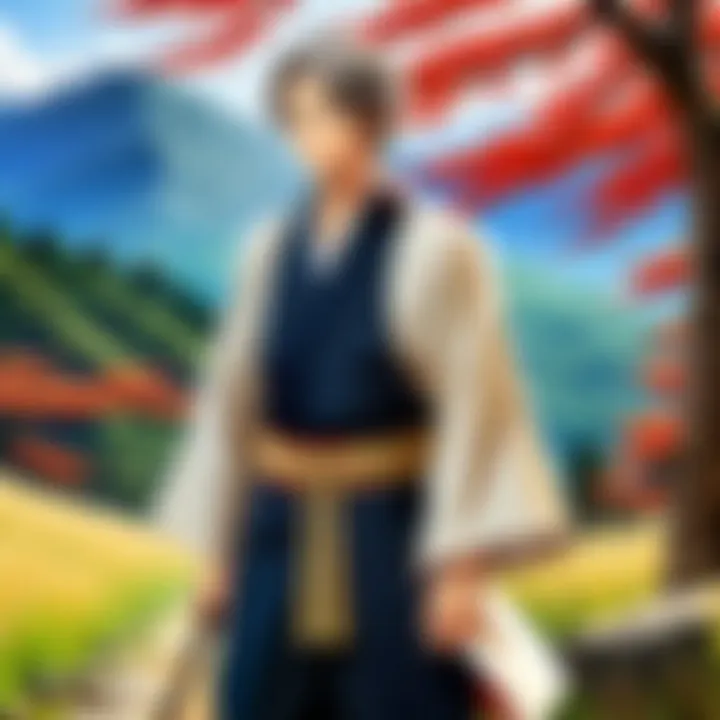
Responses to Economic Pressures
Navigating economic realities, many mushoku stories explore how characters respond to unemployment and financial strain. These narratives commonly depict economic hardship through a wide range of experiences—some bear the heavy weight of despair, while others spark creativity in their struggle.
Economic pressures drive characters to seek unconventional paths or challenge traditional notions of success. Aligning with the essence of mushoku, many find themselves in limbo, facing not only practical challenges but also existential dilemmas.
- Innovative responses: In efforts to survive, characters may embark on journeys filled with unorthodox career choices, such as starting a quirky business or diving into a hobby.
- Community reliance: Certain stories illustrate how characters band together, forming micro-communities that foster support and resilience.
- Advocacy for mental health awareness: The portrayal of emotional struggles linked to economic pressures can eliminate stigmas and promote dialogue surrounding mental health.
*"In mushoku narratives, it’s not merely about surviving the economic landscape; it’s about finding meaning within the chaos, often where hope is a flickering flame in the shadows of despair."
Through their multi-faceted responses to economic pressures, characters craft stories that resonate with real-world engagements. They illustrate the resilience of the human spirit and invite audiences to reflect on how they might also navigate their unique challenges in a world that often feels hostile and unforgiving.
Community and Reception
The concept of mushoku resonates deeply within the anime and manga communities, serving as a crucial touchstone for discussions about character and narrative development. This sense of connection stems from a shared experience among fans, many of whom find themselves identifying with the themes explored through these stories. By dissecting how the community engages with this term, one can appreciate the nuanced relationships that form between content creators and their audiences.
Fan Reactions
Fans often respond to mushoku themes with a mix of fervor and introspection. Many viewers and readers express feelings of resonance, as the portrayal of unattainable goals and existential dilemmas mirrors their own struggles. This sentiment can be seen in discussions on platforms like Reddit, where fans dissect their favorite works, sharing personal anecdotes that illustrate how a character's journey resonates with their own life experiences.
- Identifying with Characters: Viewers might connect with protagonists who experience personal setbacks. For instance, a character's struggle with being jobless can directly reflect the viewers’ feeling of stagnation post-graduation.
- Finding Community: Many find solace in online forums. Community discussions often amplify one's need for belonging, as individuals share their insights and feelings related to mushoku in narratives, further solidifying community bonds.
An important facet is how this engagement with mushoku can sometimes lead to heated debates. Fans tend to express opinions about character choices and story arcs, illustrating a spectrum of emotional investment.
"Characters who face challenges that mirror real-life struggles create a unique outlet for dialogues about personal failure and societal expectations."
Influence on Contemporary Works
The impact of mushoku extends into the realm of contemporary anime and manga, fostering a literary shift that embraces complex themes associated with identity and existence. Creators often draw inspiration from viewer feedback, refining their stories to resonate with fans on a deeper level.
Some noteworthy trends in contemporary works include:
- Layered Characterization: Modern storytelling frequently showcases characters grappling with ambiguity and a search for purpose, reflecting the complexities of modern life.
- Meta-Narrative Techniques: Some works employ self-awareness, breaking the fourth wall to engage audiences while addressing the fraught relationship between fiction and reality.
- Diversity of Experiences: There’s a growing emphasis on authentic portrayals of varying backgrounds and life paths, shifting away from archetypal character designs.
By weaving mushoku themes into their narratives, creators are not just telling stories; they’re inviting viewers to reflect on their own life experiences. This balance between narrative depth and audience engagement is paving the way for a richer anime and manga landscape, where storytelling becomes a shared journey of exploration.
Future Directions
The concept of mushoku continues to evolve as anime and manga engage with ever-changing societal dynamics. Recognizing this significance in the context of our current discussion allows us to gaze into the future and see how these narratives may shift. The depiction of mushoku isn't just a trend but a profound reflection of human experiences, filtered through the cultural lens of Japan. By understanding where we are headed, creators can tap into valuable insights that resonate with audiences across generations.
Emerging Trends in Storytelling
As we observe the landscape of anime and manga grow, certain patterns emerge that define new storytelling approaches. The move towards complexity in character development is paramount, as characters with flawed identities create a richer, more nuanced narrative. Here are some key aspects influencing emerging trends in storytelling:
- Diverse Voices: There's a steady rise in stories told from different cultural perspectives, offering fresh insights into the human condition.
- Character-Driven Plots: The focus is shifting from mere plot-driven narratives to ones deeply invested in character arcs, creating opportunities for profound explorations of identity.
- Blending Genres: As traditional genres blend, we find unique storytelling elements that embody mushoku themes, allowing for more creative freedom and innovative narratives.
- Interactive Platforms: With advancements in technology, the way stories are consumed is evolving. Platforms that enable fan participation mean creators can respond to audiences in real-time, crafting narratives that feel personal and relatable.
"The future of storytelling lies in the delicate balance between innovation and character focus; it’s about singing new tunes while keeping the same old heart."
These elements suggest a transformative era in anime and manga, where the very framework of storytelling adapts to societal currents while still delving into the core tenets of mushoku.
Potential Shifts in Representation
As mushoku narratives continue to gain traction, the representation of characters grappling with identity and societal expectations is bound to undergo substantial shifts. This evolution is critical, as representation directly influences not only the stories themselves but also how audiences engage with them. Here’s what we can anticipate regarding potential shifts in representation:
- Authentic Relationships: Expect to see more genuine portrayals of human connections that reflect realistic struggles and triumphs rather than idealized versions.
- Encompassing Diverse Identities: As awareness around gender and sexual identities broadens, line-ups of characters are becoming increasingly inclusive, breaking stereotypes and fostering empathy.
- Complex Antagonists: Traditional villain archetypes are giving way to multi-dimensional characters whose motivations stem from deep-seated insecurities and societal pressures, challenging viewers to reconsider their notions of good and evil.
- Cultural Nuances: As global influences continue to play a role, we might see narratives that engage with not just Japanese culture but wider global themes of mushoku, offering cross-cultural commentary.
The shifts in representation will not only enhance the narrative richness of anime and manga but also offer deeper insights into human connections, paving the way for more relatable and impactful storytelling.
End
The conclusion of our analysis delves into the heart of why understanding the notion of mushoku is paramount in the realm of anime and manga. This exploration wraps up the myriad themes and insights that have been discussed, emphasizing the tapestry woven throughout these narratives. The elements that stand out include how mushoku reflects societal expectations, influences character development, and resonates with personal struggles.
Summary of Key Insights
In this article, we peeled back layers on the intricate concept of mushoku. Here are some key takeaways:
- Cultural Resonance: The portrayal of mushoku in out forms reflects deeply-rooted cultural values, effectively illustrating societal pressures tied to identity and success.
- Character Depth: Protagonists grappling with mushoku often experience profound journeys, serving as mirrors to the viewers’ own dilemmas in life, reflecting real-world struggles.
- Theme Exploration: Key themes such as isolation and belonging emerge as recurring motifs, allowing audiences to delve deeper into the characters' psyches.
Ultimately, recognizing these insights not only enhances our understanding but also enriches our appreciation for the narratives we consume.
The Lasting Impact of Mushoku
Mushoku, as a concept, is continually evolving, leaving an indelible mark on contemporary storytelling. Its portrayal offers a compelling lens through which audiences can analyze the challenges and complexities of modern existence. The resonance of mushoku is becoming ever richer as new mediums evolve and old tales are retold.
- Influence on Future Works: As creators continue to draw inspiration from the struggles encapsulated in the mushoku narratives, the themes are set to transcend cultural boundaries, inviting global discourse.
- Empowerment through Representation: The ongoing reflection of mushoku in stories serves not only as a means of entertainment but also as a source of empowerment for those who relate to these experiences. It prompts a conversation around vulnerability and the human condition.
In summary, mushoku transcends mere thematic exploration; it serves as a poignant commentary on personal failure, societal expectations, and the quest for identity in a rapidly changing world. As audiences continue to engage with these multifaceted stories, the impact of mushoku is likely to echo for generations to come.















